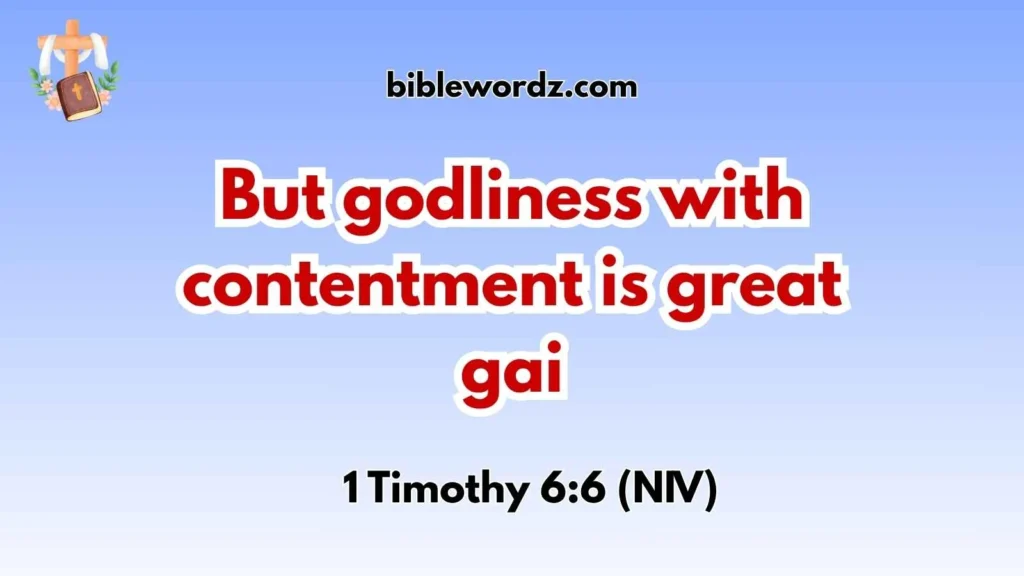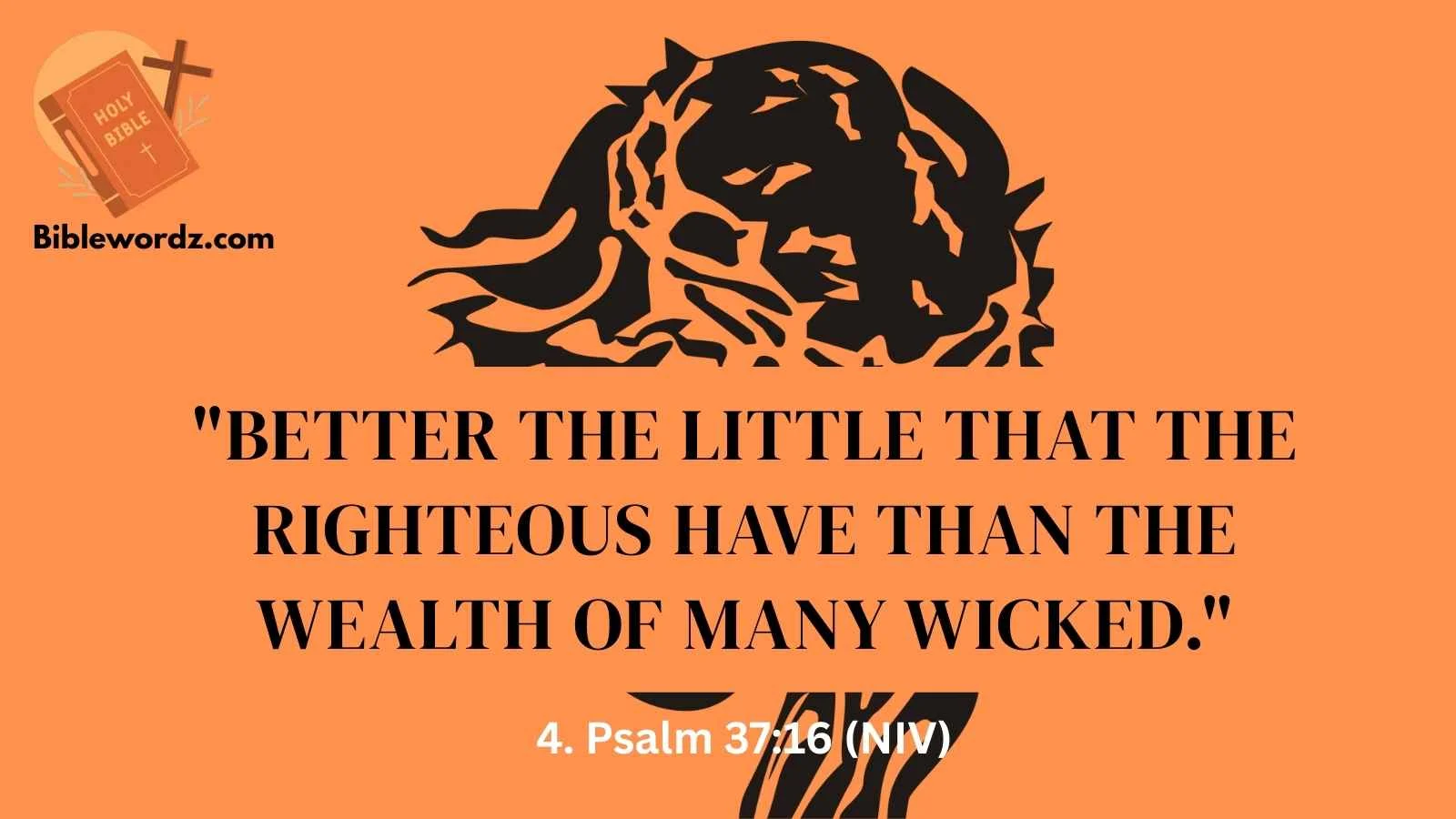Last updated on October 25th, 2025 at 09:29 am
In a world that constantly urges us to strive for more, contentment can seem elusive.
Yet, as Christians, we are reminded that true contentment doesn’t come from what we have, but from trusting in God’s provision and embracing His will for our lives.
The Bible teaches us that contentment is a state of the heart, rooted in gratitude and the peace that comes from knowing God is enough.
Learning to be content is not about settling for less but about recognizing God’s sufficiency in every circumstance.
These Bible verses about contentment remind us that when we trust God, we find peace, joy, and satisfaction in His presence.
1. Philippians 4:11-12 (NIV)
“I am not saying this because I am in need, for I have learned to be content whatever the circumstances. I know what it is to be in need, and I know what it is to have plenty. I have learned the secret of being content in any and every situation, whether well fed or hungry, whether living in plenty or in want.”
Paul shares his powerful testimony of contentment, revealing that true satisfaction is not found in wealth or abundance, but in knowing Christ in every situation. Whether in times of plenty or need, Paul has learned that God’s grace is sufficient.
Reflection: Contentment comes from knowing that God provides all we need, regardless of our external circumstances. When we focus on His sufficiency, we can find peace in every season of life.
2. Hebrews 13:5 (NIV)
“Keep your lives free from the love of money and be content with what you have, because God has said, ‘Never will I leave you; never will I forsake you.'”
This verse warns us about the dangers of greed and the love of money, while encouraging us to be content with what God has given. His constant presence is the ultimate reason for our contentment.
Reflection: True contentment comes from knowing God is with us always. When we shift our focus from material things to God’s faithfulness, we experience lasting peace.
3. 1 Timothy 6:6-8 (NIV)
“But godliness with contentment is great gain. For we brought nothing into the world, and we can take nothing out of it. But if we have food and clothing, we will be content with that.”
Paul teaches that godliness, combined with contentment, is the greatest form of wealth. In the end, our material possessions are fleeting, but a heart of contentment rooted in God’s provision is eternal.
Reflection: This verse challenges us to focus on what truly matters—our relationship with God and the simple blessings He provides. When we prioritize these, we find lasting fulfillment.
4. Psalm 37:16 (NIV)
“Better the little that the righteous have than the wealth of many wicked.”
This verse reminds us that contentment is not about accumulating wealth or possessions, but about living righteously and being thankful for what God provides.
Reflection: Contentment isn’t about having more, but about valuing what we have with a grateful heart. God’s provision is always enough when we trust Him fully.
5. Matthew 6:25-26 (NIV)
“Therefore I tell you, do not worry about your life, what you will eat or drink; or about your body, what you will wear. Is not life more than food, and the body more than clothes? Look at the birds of the air; they do not sow or reap or store away in barns, and yet your heavenly Father feeds them. Are you not much more valuable than they?”
Jesus teaches us not to worry about material needs because God, our Father, will provide. He reminds us of the birds of the air, who are cared for without effort or worry, and assures us that we are of much greater value.
Reflection: Trusting in God’s care helps us release worry and embrace contentment. This verse calls us to surrender our fears and trust in His perfect provision.
6. Proverbs 19:23 (NIV)
“The fear of the Lord leads to life; then one rests content, untouched by trouble.”
Living in reverence to God leads to a life of peace and contentment. The fear of the Lord means recognizing His authority and trusting in His will, which leads to rest and security in all situations.
Reflection: When we live with a proper understanding of God’s sovereignty, we find true contentment and freedom from anxiety.
7. 2 Corinthians 12:9-10 (NIV)
“But he said to me, ‘My grace is sufficient for you, for my power is made perfect in weakness.’ Therefore I will boast all the more gladly of my weaknesses, so that the power of Christ may rest upon me. For the sake of Christ, then, I am content with weaknesses, insults, hardships, persecutions, and calamities. For when I am weak, then I am strong.”
Paul finds contentment not in avoiding suffering but in experiencing God’s grace and strength through it. This verse teaches that our weakness is an opportunity for God’s power to be displayed.
Reflection: Contentment doesn’t depend on our circumstances, but on the sufficiency of God’s grace. Even in weakness, we can find peace knowing that God is at work in us.
8. Luke 12:15 (NIV)
“Then he said to them, ‘Watch out! Be on your guard against all kinds of greed; life does not consist in an abundance of possessions.'”
Jesus warns us that life is not about accumulating things, but about living with a heart of contentment and generosity. Greed leads to dissatisfaction, but contentment brings peace.
Reflection: This verse challenges us to evaluate our hearts and desires. Contentment is not about having more, but about appreciating what God has already given.
9. Romans 8:28 (NIV)
“And we know that in all things God works for the good of those who love him, who have been called according to his purpose.”
Even when life doesn’t go as planned, this verse assures us that God is working for our good. Trusting in His purpose brings contentment, even in difficult times.
Reflection: Knowing that God is working all things for our good allows us to rest in His sovereignty and embrace contentment, even in the midst of trials.
10. James 1:17 (NIV)
“Every good and perfect gift is from above, coming down from the Father of the heavenly lights, who does not change like shifting shadows.”
Contentment is rooted in recognizing that every blessing we have is a gift from God. He is the unchanging source of every good thing in our lives.
Reflection: Recognizing that all good things come from God helps us cultivate a heart of gratitude and contentment, rather than striving for more.
Bible Verse About Being Content in All Circumstances
Philippians 4:11–13 (NIV)
“I have learned to be content whatever the circumstances. I know what it is to be in need, and I know what it is to have plenty. I can do all this through Him who gives me strength.”
Reflection:
Paul’s words remind us that contentment is not based on comfort or wealth, but on trust in Christ. True peace flows from a heart anchored in God, not in changing circumstances.
Impact:
This verse inspires us to find satisfaction in God’s strength, not in what we possess. When we rely on Him, we experience steady joy that remains even in life’s hardest moments.
Benefits of Contentment in the Bible

1 Timothy 6:6 (NIV)
“But godliness with contentment is great gain.”
Reflection:
The Bible teaches that contentment brings spiritual richness. It shifts our focus from chasing more to cherishing what God has already given us.
Impact:
A content heart invites peace, gratitude, and deep joy. It helps us value eternal blessings over temporary pleasures, strengthening our relationship with God.
Lack of Contentment in the Bible
Ecclesiastes 5:10 (NIV)
“Whoever loves money never has enough; whoever loves wealth is never satisfied with their income. This too is meaningless.”
Reflection:
This verse reveals how discontentment traps the heart. The more we crave worldly things, the emptier we feel — because nothing material can fill a spiritual void.
Impact:
It challenges us to shift our desire from possessions to purpose. Only when we rest in God’s sufficiency do we experience true fulfillment.
Bible Verses About Contentment in Singleness

1 Corinthians 7:32–34 (NIV)
“I would like you to be free from concern. An unmarried man is concerned about the Lord’s affairs—how he can please the Lord.”
Reflection:
Paul teaches that singleness can be a season of undivided devotion to God. It’s not a lack, but a space for deeper purpose and personal growth.
Impact:
This verse reminds us that joy and fulfillment are not dependent on relationship status. Contentment in singleness allows us to experience God’s love more fully and serve Him freely.
Conclusion:
Contentment is not a passive state—it is a choice to trust in God’s provision and embrace His plan for our lives.
By focusing on His faithfulness, we can find peace and joy in every season, regardless of our circumstances.
When we learn to be content, we open our hearts to the blessings God has already given us, experiencing true fulfillment and peace.





